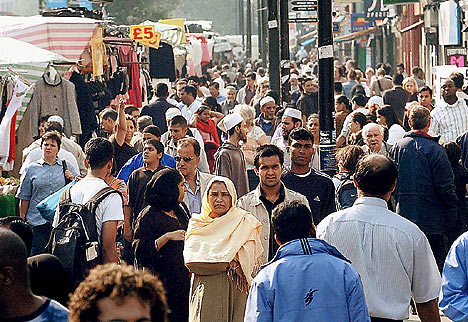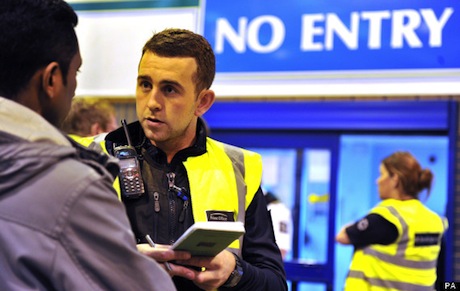On Saturday the BBC made its football commentator and former Liverpool striker Robbie Fowler apologise on air for describing two footballers as „fighting like girls”. It made for uncomfortable viewing. It was obvious to any viewer with more than one brain cell that Fowler’s comment, made about a tussle between Fernando Torres and Jan Vertonghen during the Tottenham-Chelsea game, was entirely innocent, intended only to condemn Torres and Vertonghen’s childish antics and not to salnder the female sex. Yet minutes later, having clearly had a word in his ear from PC producers, a red-faced Robbie was making an embarrassing climbdown and telling the nation he was „deeply sorry” for apparently offending womankind. It was an ugly and humiliating spectacle.
There is something unedifying about forced public apologies, especially when the only „crime” the penitent has committed is to have spoken out of turn, to have said something controversial, rude or potentially offensive (potentially being the operative word in the case of Fowler’s unremarkable remark). That the BBC thought it appropriate to behave like a Stalinist official outraged by the temerity of a political upstart, and to strong-arm Fowler into apologising effectively for offending public decency, shows how crazily cautious it has become in recent times. Still smarting from the Savile scandal, and from various accusations of offensiveness made by the shrill offence-takers who plague modern Britain, the BBC is petrified of saying or showing anything saucy or untoward in its programmes – to the extent that it would rather publicly humiliate one of its commentators than run the risk of receiving a handful of complaints from easily offended feminists who police the use of the word “girls”.
The humiliation of Fowler confirms that footballers, and their fans, are fair game for censorship in contemporary Britain. They’re the most gagged, banned and shutdown section of society. If you think it’s bonkers that Fowler should have been humiliated for innocently using the word girls, then consider this: his old club, Liverpool FC, has a guidebook for its staff telling them which words are unacceptable in Anfield stadium. They range from genuinely offensive words – such as the n-word – to words only a nun could find offensive: poof, fairy, midget, spaz. Even phrases like “Man up” and “You play like a girl” are now frowned upon at Anfield – and, it seems, at the BBC, where Fowler has discovered that using the age-old phrase “behaving like girls” to describe immature behaviour in adults can now earn you a severe public shaming.
Beyond Liverpool, other footie fans are forbidden from singing certain songs or chanting certain phrases. In Scotland, the Offensive Behaviour at Football and Threatening Communications Act makes it a crime for Celtic and Rangers fans to sing “sectarian” or even political songs. Last month it was announced that every single footballer in the Premier League will have to attend lessons about the use of homophobic and racist language, presumably to cleanse their dumb, working-class brains of their foul prejudices. The Football Association has declared war on the use of homophobic language at football grounds, which includes obliterating not only offensive words like “queer” but also, once again, jokey phrases about “girls” and “manning up”. The FA is also trying to stop Tottenham Hotspur fans from referring to themselves as Yids and the Yid Army, something they’ve done for years. The Crown Prosecution Service itself has warned football clubs not to allow their fans to “cross the line [into] inappropriate crowd behaviour and chanting”. But who decides what is appropriate and inappropriate chanting? Surely it should be fans themselves rather than the snobby, censorious suits and PC phrase-police who have become an ugly blot on the beautiful game in recent years?
If any other group of people were treated as censoriously as football fans are, there’d be outrage. If writers were forced to make public apologies for having said something offensive, Index on Censorship would go crazy. If political activists were forbidden from singing songs that politicians found offensive, Liberty would be weeping on the floor of the European Court of Human Rights. But football fans’ right to freedom of speech? Nah, we’re not interested in that. Gag their jokey phrases, squish their songs, police their minds – no one will kick up a fuss. But we should. Because freedom of speech doesn’t mean a thing unless it is enjoyed by everyone, however gruff you might find them, however offensive you think they are, however much you consider them to be “knuckle-dragging cretins” – the term used by a Guardian writer to describe offensive football fans. Robbie Fowler should have told the BBC to stick its apology, and fans across Britain should be telling the lawmakers and do-gooders who want to curb their chants and silence their un-PC chatter to get stuffed (or maybe something a bit stronger).










